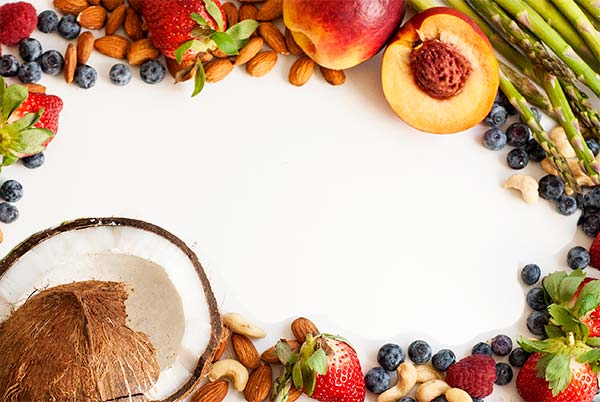
Living & Staying Gluten-Free
Having worked with patients for about two decades, I find interesting the widely varying responses of individuals who discover that they must maintain a gluten-free diet. While one may proclaim it “nearly impossible” and constantly slip up with the result of returning symptoms and slowly worsening health, another claims that gluten is “rat poison” and therefore it never crosses his or her lips again, at least not knowingly. Needless to say, this latter individual gets and stays healthy more frequently than the former.
While those are the two extremes, there are many gradients in between. The point of this article is to give you some simple tips and viewpoints that will help you and those you care about to live and stay gluten-free in this gluten-full world.
The first step is always education. People are not going to do anything, let alone make a major change in their diet, if they don’t appreciate why it’s required. Probably the most difficult (and annoying) trait of gluten is its silent nature. Some people develop a very dramatic reaction from eating gluten, but many react negatively on the inside and invisibly on the outside – meaning that gluten is damaging their body but sadly, they cannot feel it. Obviously, those falling into the “silent” category have a more difficult time following a strict gluten-free diet because their bodies give them no hint that they have transgressed.
If you fall into that category, it doesn’t mean that you have an excuse to cheat. I recommend that you educate yourself enough so that you understand how gluten is damaging your health and shortening your life. In a nutshell, we know that there is no system (digestive system, nervous system, reproductive system, etc.) or organ of the human body that gluten cannot touch and damage. The exact nature of how it will affect your health is unique to you.
Currently, I am dealing with the failing health of my almost 92-year-old mother. She was one of the family members whom I diagnosed when I first became aware of gluten as a problem more than 20 years ago. She was one of the “cheaters” that I just discussed. It wasn’t until I moved her and my dad out to California about a decade ago that she finally became perfect on her diet. We are very aware of gluten’s connection to osteoporosis (or brittle bones). We are equally secure in the knowledge that gluten strongly affects the nervous system. Those are the two systems most affected in my mother. She can no longer walk and now suffers from dementia.
I can only wonder what state her health would be in now had she followed her gluten-free diet beginning 22 years ago when I first diagnosed her.
Once educated, I find that patients are more likely to follow their diet. They can’t “stick their head in the sand” of ignorance any longer. They know the repercussions and understand that they won’t necessarily “feel” the effects of gluten, but that doesn’t mean that gluten isn’t creating damage.
While not for everyone, we do have a blood test that we can perform on patients who cheat that “proves” to them that damage is occurring, regardless of whether they can feel it. There are two test options. One shows that the immune system is reacting to the gluten coming its way. The other shows autoimmune tendencies being created from gluten exposure. These are excellent tools available for those patients who need to see on paper from a lab that their gluten exposure is creating ill health effects. (Cyrex Labs performs these particular tests.)
Lifestyle management is the next area that must be addressed. When a body gets hungry, it can only be put off for so long. And the hungrier it gets, the more likely it is that good judgment will go out the window. I find that creating strategies to prevent excessive hunger and poor food choices is vital to maintaining a gluten-free diet.
Typically, I review when and where patients “get into trouble.” Is it when they’re traveling? Perhaps it’s at work during long meetings? Is it the mid-afternoon snack time? Once we see where the problem areas reside, creating clever ideas to solve these pitfalls isn’t difficult.
I think everyone should carry some clean water around in a stainless canister and additionally have some food on hand at all times, such as some nuts, a healthy protein bar (not the easiest to find, but they are out there), a hardboiled egg, and the like. If there’s something healthy and gluten-free to grab, then you won’t be tempted to eat the wrong thing out of desperation.
Cravings can be hard. If you’re new to eliminating gluten, do realize that physical cravings dissipate in just a few days. This is the same with smoking. Those trying to quit often think it’s the physical craving that has them going back to smoking, when in fact it’s not. When it comes to cravings, all you need to do is make it through about three days and you’ll be free of any physical cravings. That’s not too hard!
Why, then, do cravings continue to rear their ugly head? I find that, unfortunately, many of the gluten-free offerings available to us on our grocery store shelves are the culprit. It’s not that they contain gluten, but they are so refined in the types of flours and sugars they use that they cause an elevation in the body’s blood sugar. As they say, what goes up must come down. When the elevated blood sugar plummets, you will then crave more refined carbohydrates and sugars. This is a frequent dilemma that I find my patients facing. They are trying so hard to replace their favorite gluten-containing foods that they stumble right into an unhealthy, although gluten-free, trap. Simple carbohydrates such as refined flours and sugars raise blood sugar and insulin while also increasing weight and inflammation. Inflammation is a trigger for most of the degenerative diseases we wish to avoid including heart disease, cancer, and diabetes, not to mention obesity and autoimmune disease.
It’s insidious that these highly refined gluten-free breads, cakes, and cookies – despite their gluten-free status – can actually cause individuals to cheat on their gluten-free diet due to intense cravings. Even if they maintain their gluten-free status, they are still compromising their health due to these overly refined foods.
Don’t get me wrong. I have nothing against an occasional treat at a party or birthday. But these foods should not be daily staples. If you’re having trouble with your waistline or suffering with cravings, consider opting for healthier, less refined options. As an example, working with almond flour versus white rice flour is an excellent alternative. Utilizing a little honey, maple syrup, dates, or apple sauce beats all the refined white sugar in many pre-packaged items.
Continuing with lifestyle advice, one major piece that I share with patients is not to be shy. We so dislike being different. We didn’t like it as children and we don’t like it as adults. Too often patients consider themselves to be weird or odd because they have to follow a gluten-free diet.
But let’s look at it another way: you like your friends and family, right? What if sharing your gluten-free status with them resulted in several of them discovering that they too were gluten sensitive or had celiac disease? We know that less than 10 percent of celiacs ever get diagnosed. Sharing about your gluten-free diet has the potential of improving the health of those you care about. I guarantee that if you’re outspoken about being gluten-free, one or both of the following will happen:
- You will stick to your diet better because your friends and family will understand what you’re doing and why.
- You will help someone you know to become healthier because they will discover that they also are sensitive to gluten.
My clinic sees patients from across the country and internationally because of our expertise in this area. The number of times that patients discover their gluten-related problems because a friend suggested it to them is quite staggering. If you’re outspoken about your gluten-free diet, you’ll feel great about helping those you care about and you’ll be helping yourself in maintaining your gluten-free life.
ABOUT THE AUTHOR:
Dr. Vikki Petersen, winner of the “Gluten-Free Doctor of the Year” award, is a Doctor of Chiropractic, Certified Clinical Nutritionist, internationally published author, speaker, and co-founder of Root Cause Medical Clinic. She is the author of The Gluten Effect, a best-seller on gluten sensitivity and celiac disease.




Pingback: Gluten Free Thai Pork Tenderloin Recipe | Simply Gluten Free
Pingback: Chipotle Steak and White Bean Chili Recipe | Simply Gluten Free
Pingback: Chickpea Tagine with Quinoa and Harissa | Simply Gluten Free
Pingback: Gluten Free Wild Mushroom and Quinoa Risotto | Recipes | Simply Gluten Free